In today’s fast-paced world, families often find themselves juggling a million things at once. Between work, school, and social commitments, it’s no wonder that behavioral health can take a backseat. But just like a well-oiled machine needs regular maintenance, so do families. Ignoring the signs can lead to chaos, misunderstandings, and that awkward silence at the dinner table that no one wants to address.
Family Behavioral Health
Family behavioral health encompasses the emotional and psychological wellness of individuals within a family unit. Maintaining this health is crucial for fostering positive relationships and effective communication.
Definition and Importance
Family behavioral health refers to the collective mental and emotional well-being of family members. Each individual’s health impacts the family dynamic. Prioritizing behavioral health strengthens relational bonds and enhances resilience. Acknowledging and addressing mental health issues prevents the escalation of problems. Supportive interactions create a nurturing environment, reducing stress and conflict.
Key Components of Family Behavioral Health
Several key components shape family behavioral health. Communication plays a vital role, allowing family members to express feelings and concerns openly. Conflict resolution skills help mitigate disagreements constructively. Emotional support fosters a sense of security and belonging, reinforcing connections among family members. In addition, stress management techniques promote coping strategies. Each component contributes to holistic family wellness and stability.
Common Issues in Family Behavioral Health

Families often face various challenges that directly impact their behavioral health. Recognizing these issues is crucial for maintaining healthy family dynamics.
Mental Health Disorders
Mental health disorders significantly affect family dynamics. Conditions such as anxiety disorders, depression, and bipolar disorder can lead to misunderstandings and tension. Each family member’s mental health influences overall family functioning. For example, a parent experiencing depression might withdraw emotionally, impacting their children’s behavior and emotional well-being. It’s essential for families to engage in open dialogues about mental health. Prioritizing mental health awareness fosters support and understanding among family members. Encouraging professional help can also provide effective coping strategies, benefitting the entire family.
Substance Abuse
Substance abuse poses serious risks to family behavioral health. Drug and alcohol dependency can disrupt family relationships and create an environment of distrust. Family members may experience feelings of anger, confusion, and helplessness. Addressing substance abuse requires honest communication and empathy. Involving the entire family in treatment can promote healing and understanding. Support groups provide essential resources for families impacted by substance abuse. Prioritizing recovery over stigma strengthens family bonds and restores stability. Engaging in healthy activities together can help rebuild a sense of unity.
Interventions and Treatments
Addressing family behavioral health concerns requires tailored interventions and treatments. Effective strategies enhance communication and strengthen relationships among family members.
Family Therapy Approaches
Family therapy focuses on resolving conflicts and improving interactions among family members. This approach often involves a licensed therapist guiding sessions that address underlying issues. Techniques such as cognitive-behavioral therapy (CBT) target negative thought patterns, while systematic family therapy explores family dynamics. Sessions encourage members to express feelings, fostering an environment of understanding. Collaborative efforts in therapy can lead to shared problem-solving, reinforcing bonds and promoting resilience.
Support Groups and Resources
Support groups serve as valuable resources for families grappling with behavioral health challenges. These gatherings offer a safe space to share experiences and coping strategies. Participants benefit from connecting with others who understand their struggles, which can reduce feelings of isolation. Additionally, numerous organizations provide educational materials and online resources for families. Accessing these tools empowers families to navigate challenges more effectively while reinforcing positive behavior changes and healthy relationships.
Role of Professionals in Family Behavioral Health
Professionals play a crucial role in addressing family behavioral health. They offer guidance and resources tailored to enhance the well-being of all family members.
Psychologists and Counselors
Psychologists and counselors specialize in understanding mental health disorders and improving family dynamics. Licensed professionals facilitate family therapy sessions, fostering open communication. These sessions often utilize techniques like cognitive-behavioral therapy to encourage expression of thoughts and feelings. As a result, they help resolve conflicts and enhance emotional support among members. Support from these experts also equips families with coping strategies to manage stress and navigate challenges effectively.
Social Workers and Support Staff
Social workers and support staff assist families in accessing essential resources and services. They conduct assessments to identify specific needs and provide guidance throughout treatment. Their role often includes coordinating with educational and community entities to offer holistic support. These professionals empower families with tools for enhancing relationships and emotional wellness. By providing ongoing encouragement, they also help families develop healthier patterns of communication and coping mechanisms.
Conclusion
Prioritizing family behavioral health is essential for nurturing strong relationships and effective communication. By addressing mental health concerns and fostering an environment of open dialogue, families can create a supportive atmosphere that promotes emotional well-being. Engaging in therapy and utilizing support groups can provide the necessary tools for families to navigate challenges together.
As families commit to understanding and improving their behavioral health, they not only strengthen their bonds but also enhance their resilience in facing life’s difficulties. Investing time and effort into this crucial aspect of family life leads to healthier interactions and a more harmonious home environment.



